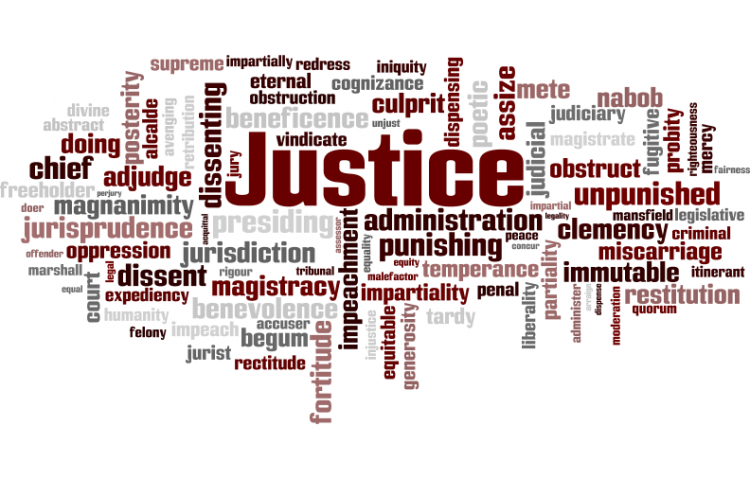In the Public Interest: Demand Fair Play for Canada’s Foreign Trained Engineers!

- Target:
- Government of Canada
- Region:
- Canada
- Website:
- www.capeinfo.ca
This petition is open to the public. Please sign this petition if you support it.
BACKGROUND
Recognizing the conflict between self-interest and the public interest, the Professional Engineers Act (1922) gave self-regulating associations the power only to register engineers in Canada and not the right to control who could practice engineering.
However, in the interest of their members these associations lobbied governments for 14 years to control who could practice of engineering! Eventually, the Professional Engineers Act was amended in 1937 so these associations could introduce mandatory licensing processes.
PROBLEM 1: IT'S BAD FOR IMMIGRANTS
These provincial self-regulating associations designate who is qualified to use the title Professional Engineer (P.Eng). This legislated control over the title of Professional Engineer (P.Eng) means new immigrants possessing engineering qualifications, including those who have received a professional engineering accreditation overseas, lose this accreditation when they arrive in Canada.
In order to practice engineering in Canada, immigrants must navigate a foreign credential recognition process fraught with barriers to success. Applicants must undergo an individual-by-individual peer review of their credentials and must acquire twelve months of Canadian experience under a licensed Professional Engineer (P.Eng). However:
• Engineering associations do not publicly document what criteria constitute Canadian experience. An applicant doesn't know what s/he's going to be judged against. This is a fundamental problem.
• Applicants do not have access to an arm’s length appeals process to question how someone has interpreted their acquired Canadian experience. This is a fundamental right.
EVIDENCE
In a 2007 case Tchou-San-Da v. Association of Professional Engineers and Geoscientists of British Columbia (APEGBC) BC SC 1403 and BC SC 1815, the Supreme Court of Canada ruled that engineering association’s Bylaw 11(e)(2) was invalid and struck it down because the Bylaw failed to explain the nature and extent of the work experience required by APEGBC for licensing engineers in British Columbia.
Therefore, immigrants face a highly subjective process of Canadian experience evaluation that is not accountable, objective or transparent. For CAPE’s 3,300 immigrant members from 120 countries, all of whom seek to practice engineering in Canada, this requirement is a major barrier to licensing and employment. As a result, only 12% of our members work as engineers in Canada.
PROBLEM 2: IT'S BAD FOR CANADA
This situation negatively impacts Canada as well. In a 2006 report, the Organization for Economic Co-operation and Development (OECD) found Canada’s regulation of the engineering profession highly restrictive of competition.
Canada is also a signatory to the two major international regulatory agreements:
• As per the North American Free Trade Agreement (NAFTA) (article 1210), Canada has agreed to liberalize engineering services by making licensing requirements fair, objective, transparent, and no more burdensome than necessary.
• As per the General Agreement on Tariffs and Trade (GATTS) (TN/S/23), Canada has agreed to reduce and/or eliminate discriminatory licensing or registration procedures in engineering services.
EVIDENCE
In the Conference Board of Canada's annual scorecard:
• Canada earns a “C” grade with a Labour Productivity Growth of negative (-) 0.9%.
• Canada earns a "D" and ranks last among the 17 peer countries in graduating PhDs. CAPE members are six-times more likely to hold a Masters in engineering, and twice as likely to hold a PhD, than an engineering graduate in Ontario!
• Canada earns a "D" grade and ranks 14th out of 17 countries in innovation. The Canadian economy remains a below-average performer on its capacity to innovate.
This lack of competition and opaque licensing processes are a severe problem for our economy.
This petition is open to the public. Please sign this petition if you support it.
PROPOSED SOLUTION:
We, the undersigned, request that:
The Government of Canada initiates a full review of the self-regulated provincial licensing model in order to ensure accountability, objectivity and transparency in the current foreign credential recognition process.
Under that review, the Government of Canada must ensure that:
• The constituent elements of the twelve months Canadian experience requirement are clearly and publicly documented.
• An arms’ length appeal process is introduced into the licensing process to ensure the rights of individuals to seek justice, as is their constitutional right, against accepted documented criteria.
• The governance of the engineering profession does not restrict competition and is aligned with the requirements laid out in free trade agreements (NAFTA and GATTS) that Canada has signed to reduce and/or eliminate discrimination in licensing processes, and to ensure these are fair, objective, transparent, and no more burdensome than necessary.
You can further help this campaign by sponsoring it
The In the Public Interest: Demand Fair Play for Canada’s Foreign Trained Engineers! petition to Government of Canada was written by Council for Access to the Profession of Engineering (CAPE) and is in the category Justice at GoPetition.